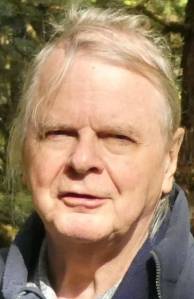Op-ed: The Facebook farce
Published 7:26 pm Thursday, October 26, 2017
The Kremlin knows a bargain when it sees it.
We are supposed to believe that it bought the American presidential election last year with $100,000 in Facebook ads and some other digital activity. Frankly, if American democracy can be purchased this cheap — a tiny fraction of the $7.2 million William Seward paid to buy Alaska from the Russians back in 1867 — it’s probably not worth having.
The latest obsession in the Russian collusion story, the Kremlin’s digital activity has generated headlines and put Facebook and all of Silicon Valley on the defensive, although this looks to be one of the most overhyped stories of the year.
The Russians, as far as we know, bought more than $100,000 in Facebook ads between June 2015 and May 2017. A little more than half was spent after last November, when, obviously, Donald Trump had already won.
The scale here is singularly unimpressive. A serious House campaign might spend $100,000 on digital. In a presidential campaign, the amount is a rounding error. The Trump campaign spent around $90 million on digital in 2016. Hillary Clinton employed a considerable digital staff, and announced she was spending $30 million on digital the last month of the campaign alone.
If tens of thousands of dollars was decisive amid this tsunami of tens of millions, the Russian trolls working somewhere in St. Petersburg should strike out on their own and start a political consultancy or an internet publishing company. They are geniuses.
It doesn’t appear that much of the Russian material was explicitly advocating for Trump’s election, and some of it wasn’t even right wing. One Russian Facebook page highlighted discrimination against Muslims. Another promoted anti-police videos for a Black Lives Matter audience. A pro-gay-rights page was called LGBT United.
Other pages were on the right and supportive of Trump. But much of the Russian Facebook activity was peddling online tripe indistinguishable from indigenous American online tripe — in fact, it was ripped off from content produced by Americans. If the Russians are going to decide our elections on social media, one assumes it will require at least a little originality.
One suspicion has been that the Trump campaign helped direct the Russian online effort. What we know about the Russian activity so far makes that doubtful. Why, if the Trump campaign was running its own digital campaign that was magnitudes larger, would it bother with a tiny Russian effort that wasn’t always focused on Trump or his message?
The Daily Beast ran a story last week with the headline “Trump Campaign Staffers Pushed Russian Propaganda Days Before the Election.” This referred to Kellyanne Conway and others associated with the Trump campaign retweeting posts from a Twitter account that masqueraded as a project of the Tennessee Republican Party, when it was really operated by Russian trolls. Conway tweeted a post from the account once, according to the story. And the report adduces no evidence that the Trump supporters knew the origin of the account.
It is outrageous that Russians meddled in our democracy at all, and if there are ways to lock them out of our social media going forward, we should do it. Let’s not pretend, though, that the Russian online activity was the key to the election. This is classic conspiracy thinking — that some small secret cabal is responsible for a world-historical outcome that had much more obvious causes (Hillary Clinton’s poor campaign, for one).
There may yet be truly damaging Russia revelations. Trump’s campaign manager during a decisive phase of the primary campaign, Paul Manafort, worked with shady characters from that part of the world. The notorious Don Trump Jr. meeting with Russians promising oppo on Clinton spoke of a willingness to cooperate with anyone who might be useful. The Trump family’s business dealings could always produce a nasty surprise.
But all the focus on Facebook serves, for now, as a substitute for a smoking gun in the absence of a real one.
Rich Lowry can be reached via e-mail: comments.lowry@nationalreview.com.




